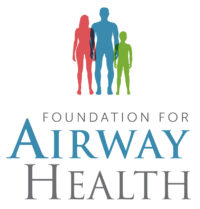The Importance of Quality Sleep on Your Health
Why Is Quality Sleep Important?

Are You Getting Enough Quality Sleep?
- Infants (0-3 months): 14-17 hours per day, including naps.
- Babies (4-11 months): 12-15 hours per day, including naps.
- Toddlers (1-2 years): 11-14 hours per day, including naps.
- Preschoolers (3-5 years): 10-13 hours per day, including naps.
- School-age children (6-13 years): 9-11 hours per day.
- Teenagers (14-17 years): 8-10 hours per day.
- Adults (18-64 years): 7-9 hours per night.
- Older adults (65+ years): 7-8 hours per night.
Understanding and adhering to these guidelines ensures that your sleep habits align with your age-related needs, supporting overall health and vitality.
Consequences Of Insufficient Quality Sleep
The ramifications of not getting enough quality sleep extend far beyond feeling groggy in the morning. It’s essential to recognize the profound impact that insufficient sleep can have on various aspects of your well-being.
Impaired cognitive function
Quality sleep is intricately linked to cognitive performance. Inadequate sleep can impair attention, concentration, and problem-solving abilities. Reaction times may slow, and memory consolidation may suffer. Prioritizing sufficient sleep is a strategic choice for maintaining mental sharpness and agility in the face of life’s challenges.
Increased risk of chronic diseases
Chronic sleep deprivation has been linked to a higher risk of developing serious health conditions. This includes an increased risk of cardiovascular diseases, diabetes, and obesity. The body’s ability to regulate blood sugar and hormones is compromised, contributing to these health risks. By ensuring you get enough sleep, you actively reduce the likelihood of developing these chronic diseases, aligning with your role as a proactive wellness warrior.
Impact on emotional and mental well-being
Quality sleep plays a pivotal role in emotional regulation. Insufficient sleep can lead to increased irritability, mood swings, and heightened emotional reactivity. As a wellness warrior, recognizing the impact of sleep on emotional well-being is crucial for maintaining a positive mindset and emotional balance. Chronic sleep deprivation has also been linked to an increased risk of anxiety and depression.
By understanding the recommended sleep durations for your age group and acknowledging the consequences of insufficient sleep, you empower yourself to make informed choices that align with your commitment to overall well-being. In the upcoming sections, we’ll explore signs that indicate you might not be getting enough sleep and delve into sleep disorders and when to seek professional help.
How Does Quality Sleep Affect You?
Quality sleep is your health ally, supporting your immune system and cardiovascular health. It’s your mood regulator and stress reliever. In the digestion realm, it plays a vital role in metabolism and appetite regulation. You know that poor sleep isn’t just a short-term issue; it’s linked to long-term health concerns. It has many impacts.
Signs You’re Not Getting Enough Quality Sleep
Common signs/symptoms that you are not getting enough quality sleep:
Fatigue and daytime sleepiness
One of the most immediate and recognizable signs of insufficient quality sleep is persistent fatigue and daytime sleepiness. If you find yourself struggling to stay awake during the day, feeling groggy despite seemingly adequate hours in bed, it may be a clear indicator that your body is not getting the restorative sleep it needs. Recognizing and addressing this fatigue is essential for maintaining optimal energy levels.
Difficulty concentrating
Sleep is intricately connected to cognitive function, and lack of sleep can manifest as difficulty concentrating and impaired decision-making. If you find your focus waning, memory lapses becoming more frequent, or tasks taking longer to complete, it may be a signal that your brain is not receiving the necessary rejuvenation during the night.
Mood disturbances
Sleep and mood are closely intertwined, and disruptions in sleep patterns often lead to mood disturbances. Irritability, increased stress, and heightened emotional reactivity are common signs that your emotional well-being may be influenced by inadequate sleep.
Brief Overview Of Common Sleep Disorders
- Insomnia: Difficulty falling asleep, staying asleep, or experiencing non-restorative sleep, often leading to daytime impairment.
- Sleep Apnea: Characterized by pauses in breathing during sleep, causing disruptions and potentially leading to reduced oxygen levels in the blood.
- Restless Legs Syndrome (RLS): Uncomfortable sensations in the legs, leading to an irresistible urge to move them, often hindering sleep.
- Narcolepsy: Involuntary and sudden episodes of daytime sleepiness, often accompanied by loss of muscle control (cataplexy).
- Parasomnias: Abnormal behaviors during sleep, such as sleepwalking, night terrors, or talking during sleep.
Understanding these sleep disorders helps wellness warriors differentiate between occasional sleep challenges and more persistent issues that may require professional intervention.
When To Seek Professional Help & Where To Find It
Recognizing the signs of potential sleep disorders is a crucial step, and seeking professional help is essential for comprehensive well-being.
- Persistent symptoms: If common signs of insufficient quality sleep persist despite implementing healthy sleep hygiene practices, it’s advisable to consult a healthcare professional.
- Impact on daily life: When sleep disturbances significantly impact daily life, work, or relationships, professional intervention becomes imperative.
- Specialized sleep clinics: Sleep disorders are often diagnosed and treated by specialists in sleep medicine.
- Consultation with a sleep specialist or a visit to a sleep clinic can provide a comprehensive assessment of your sleep patterns.
- Primary care physician: For an initial evaluation, individuals can start by discussing their sleep concerns with a primary care physician, who may provide guidance or refer to a specialist if needed.
- Start working with a myofunctional therapist: this specialized therapy is part of the recommended treatment for poor quality sleep.
We recommend getting our Ultimate Guide to Sleep-Disordered Breathing to learn more.
How Myofunctional Therapy Improves Sleep Quality
Myofunctional therapy serves as a transformative ally in the quest for improved sleep quality by addressing the intricate interplay between oral and facial muscles and their impact on overall well-being. This therapeutic approach encompasses a range of exercises and techniques specifically designed to strengthen and optimize the function of these muscles, promoting better oral posture, breathing patterns, and overall muscle tone. As myofunctional therapy targets muscles involved in sleep-related functions, it contributes to the alleviation of issues such as snoring, sleep apnea, and other sleep-disordered breathing patterns.
How To Get Started With Myofunctional Therapy?
Where Can I Learn About the Process & Prices For Therapy?



Meet Carmen Woodland
Carmen found this path of passion years ago as a dental hygienist. After a stint in graduate school to earn her M.B.A., she decided that she needed to pivot. Her heart was no longer in scraping teeth, but making a much bigger impact on lives touched by myofunctional impairment.
Her story is personal and close to home as her sweet granddaughter, Linzee, was passed back and forth amongst doctors and therapists for years trying to figure out her speech, breathing, sleep, chewing and swallowing issues. It wasn’t until Carmen completed her post graduate myofunctional therapy training that she knew Linzee’s problem was a significant tongue-tie. Bingo.
Fast forward to now. Carmen is a crusader. A warrior. A voice for those who can’t find theirs, or who don’t have one.
She left clinical hygiene practice to start Impact Myofunctional Therapy. It has evolved from a way to make a living, into an obsession!
Carmen and her associates see clients all over the world and provide innovative, virtual therapy in the remotest of places.
In addition, Carmen also
- Teaches other dental hygienists, speech therapists & dentists how to implement myofunctional therapy through the Myofunctional Therapy Training Academy.
- Coaches dental offices on how to implement myofunctional screening into the daily practice
- Speaks in various settings
She is an airway provider for the Foundation of Airway Health, where she works diligently for the recognition, diagnosis, and treatment of airway-related disorders.
And last but not least, she is a proud member of several professional associations that afford her the opportunity to continue learning so that her team can help you. Her professional memberships include:


